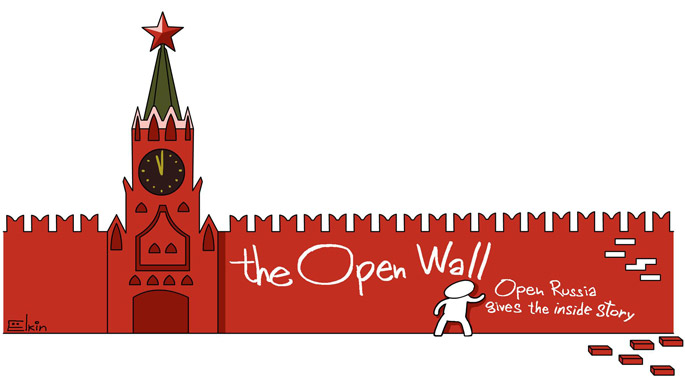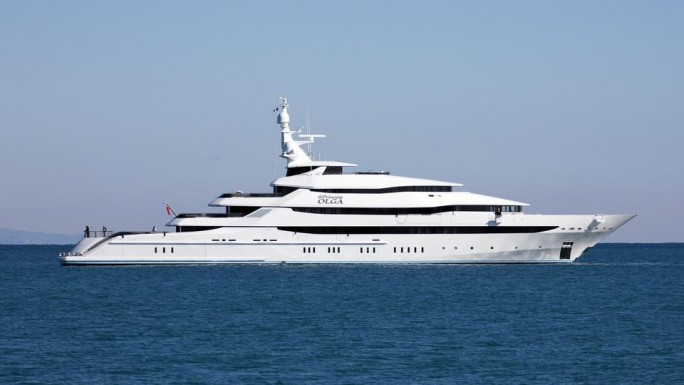“The Secret of Princess Olga”

“The Secret of Princess Olga”
These days, Moscow’s newsstands stock no more than three decent newspapers: Vedomosti, Novaya Gazeta and RBC. Igor Sechin, the all-powerful head of Rosneft, is waging an undeclared war against each of them.

Igor Sechin is a public figure who puts a very high price on privacy. His primary demand is elemental as a reflex: leave me alone with my riches. But since Sechin’s multi-million-dollar spending sprees are being brought to light with enviable regularity, Putin’s buddy has been suing journalists left, right and centre. Need we point out that the courts invariably come down on the side of Sechin?
On October 10, Sechin’s lawyers trounced Novaya Gazeta at the Basmanny District Court. In a valiant defence of his honour and dignity, Sechin had demanded that the newspaper retract a series of allegations made in an article entitled “The Secret of Princess Olga,” including the claim that his wife – the eponymous Olga – whiles away her days aboard one of the most luxurious and expensive yachts in the world (experts estimate the value of the 85-metre Princess Olga at anything between $100-190 million).
Sechin’s lawyers insisted that journalists really ought to leave their client – who, they said, was not an “influential politician,” a “public figure,” or a statesman – in peace. The column inches wasted on this humble oil industry worker were, in their words, “of no social significance.” And this despite the fact that Sechin almost single-handedly pushed through the decision to allow state-controlled Rosneft to participate in the carve-up – sorry, privatisation – of Bashneft. Initially, this shifting of public money from one pocket to another didn’t best please even Vladimir Putin. “Given that the controlling stake [in Rosneft] belongs to the state, probably it’s not the best option when one company under state control acquires another purely state company,” Putin declared in an interview with Bloomberg. But then Sechin – regarded by Basmanny District Court as an “uninfluential” and “non-public” figure – not only managed to talk round the president, but arranged things in such a way that Rosneft became the only possible buyer of Bashneft, and now stands to acquire this valuable asset without any competition whatsoever.
Basmanny District Court also ruled that the Novaya Gazeta article must be retracted, and ordered that the paper’s website be taken down on account of the fact that it panders “to the gratification of idle interest.” Yet, had the judge taken even a cursory look at the comments left by the article’s readers, she would have been confronted with firm evidence to the contrary. The public’s interest in Sechin’s riches is far from “idle” – it is, in fact, very much political:
(sprav77) “What’s there to be surprised about? This yacht belongs to a gangster who’s robbed his own people”
(volkov_michael) “Sechin has the funds he does thanks to his personal relationship with Putin. The American dream it ain’t – it’s pure nepotism”
This is by no means the first time Igor Sechin has had to clear his good name in court following a journalistic attack. As recently as mid-September, his lawyers secured a ruling against the Vedomosti newspaper, which had claimed in a report that the Rosneft chief was building a palatial mansion for himself in the billionaires’ playground of Barvikha [on the outskirts of Moscow], and that the joint market value of three plots of land owned by Sechin and members of his family may exceed $110 million.
Although Vedomosti compiled its report using data from public sources, and although Sechin, as a former deputy prime minister and a current oil company chief, is a newsmaker pretty much by definition, Ostankino Court nonetheless ruled that the journalists had invaded his privacy and were therefore liable to be punished. The newspaper itself declared that if the ruling were to stand on appeal, it could set a precedent leading to the persecution of “undesirable” media outlets and to the entrenchment of censorship designed “to protect a coterie of influential persons.” Sechin, of course, didn’t disagree with that statement.
One angry netizen spoke for many:
(Dryrussian) “I still remember [Putin’s quip that] ‘there’s no chance of a palace coup because we don’t have palaces.’ Like hell you don’t!”
But Sechin’s inquisitorial desire to destroy Vedomosti pales into significance when compared to his onslaught against the RBC media group. Sechin’s lawyers contended that RBC’s April piece on the upcoming privatisation of Rosneft (which suggested that the process might not be as clean and transparent as the government would have us believe) resulted in reputational damage so extensive that only some 3 billion roubles’ worth of compensation would be sufficient to repair it. Interestingly, the objectionable material was published when RBC was still under its old management, making the regime squirm with frequent high-profile investigations, but it is only now, with the RBC editorial team firmly gagged, that Rosneft has set about making these damages claims.
The jury is still out on this one. But if you ask us, the outcome of any ostensibly adversarial trial featuring Sechin in the role of claimant is as predictable as that of an ostensibly competitive tender process involving the Rotenberg brothers.



